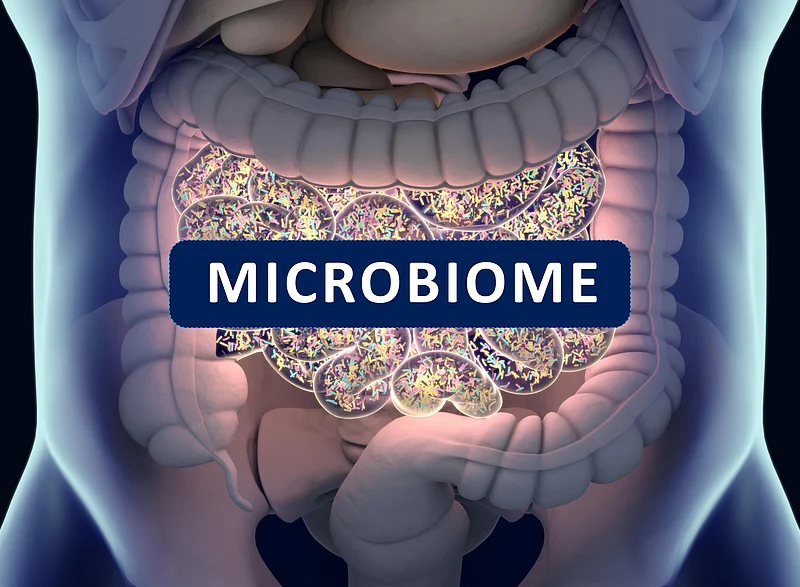Get Healthy!

- Dennis Thompson
- Posted June 30, 2022
Will You Be Depositing at the 'Stool Bank' Someday?
Banking samples of your own poop in your youth and then transplanting them back when you're old might be a key to healthy aging, scientists suggest.
Stool samples frozen and stored when a person is vital and healthy could potentially rejuvenate bacteria in the gut that's become damaged due to aging, disease or antibiotic use, according to an opinion piece published June 30 in the journal Trends in Molecular Medicine.
Fecal transplants already are used to treat C. difficile, an opportunistic bug that causes severe diarrhea in people whose gut bacteria has been wiped out by antibiotic use, said senior opinion author Yang-Yu Liu, an associate professor at Harvard Medical School.
Damaged or aging gut bacteria also have been linked to increased rates of health problems like asthma, allergies, gastrointestinal diseases and type 2 diabetes.
By storing healthy poop when you're younger and then donating it back to yourself -- a process they call autologous fecal microbiota transplantation (FMT) -- you might be able to ward off some of these diseases associated with aging, the scientists said.
"We expect that autologous FMT [stool samples collected from the host at a younger and healthier age] may be a more powerful therapeutic approach to promote healthy aging of the host than heterologous FMT [stool samples collected from an unrelated young and healthy donor]," Liu added.
Many stool banks already have opened worldwide, primarily to store healthy fecal samples so they can be available to patients with C. difficile, researchers noted. About half a million people in the United States come down with C. difficile each year, and about 29,000 die from the bug.
However, these facilities gather samples taken from donors and passes them along to others in need; they don't typically store individual samples for that donor's own future use.
The new paper envisions a future where everyone stores away their own fecal samples in anticipation of "rewilding" their gut bacteria when they are older.
This would be particularly beneficial because your younger bacteria wouldn't have been exposed repeatedly to antibiotics, and so would not have had a chance to become infested with antibiotic-resistant bacteria, the researchers wrote.
But there are a lot of hurdles that will need to be cleared before such stool banking becomes reality, the researchers added.
First off, there are major safety concerns -- could some bacteria in your younger GI tract actually pose a threat to an older version of yourself?
Doctors will need "to identify opportunistic pathogens that are benign for young adults with a strong immune system but harmful to the elderly with a weakened immune system," Liu said.
There's also a question of whether a fecal transplant would actually rejuvenate an aging gut microbiome, said Dr. Sahil Khanna, a gastroenterologist with the Mayo Clinic in Rochester, Minn.
"When you transplant gut bacteria from a younger version of yourself to an older version of yourself, do the bacteria make you younger, or do the bacteria themselves become older to fit in with your existing microbiome?" said Khanna, who was not involved with the opinion piece. "We don't know if that has been proven to reverse the aging bacteria or not."
The idea also raises a lot of logistical issues.
Storing stool samples for decades would require expensive freezers that could get as cold as -214 degrees Fahrenheit, Liu predicts -- not something available to the average Joe.
"It's a funny thing to think about, every person having a poop bank in their basement freezer, but that wouldn't be the right thing to do," Khanna said. "Stool banking is not a DIY proposition."
Stool banks also would need a lot of freezer space, and would require a lot of energy to run those freezers, Liu added. It's going to be an expensive proposition.
"We do not anticipate that all individuals in our society are willing to pay the cost," Liu said. "Developing a reasonable business model and marketing strategy would certainly require the joint force of entrepreneurs and scientists."
Further, it's not known how much poop you'd have to store for each person. C. difficile can be treated with a single fecal transplant, Khanna said, but more complex problems, like inflammatory bowel disease, probably would require multiple transplants.
Future research will be needed to figure out all these problems, and also to help identify specific people who might be at high risk for a disease that could be treated through fecal transplant, Khanna said.
"This is very futuristic," Khanna said of the paper. "We're probably not quite there as yet, but that's where we need to be."
More information
OpenBiome has more information on stool banking.
SOURCES: Yang-Yu Liu, PhD, associate professor, Harvard Medical School, Boston; Sahil Khanna, MBBS, gastroenterologist, Mayo Clinic, Rochester, Minn.; Trends in Molecular Medicine, June 30, 2022






